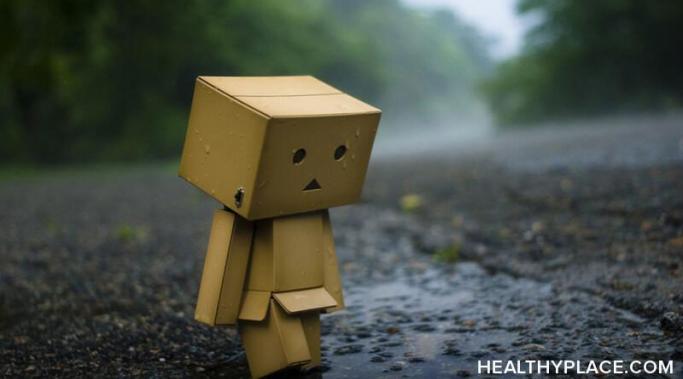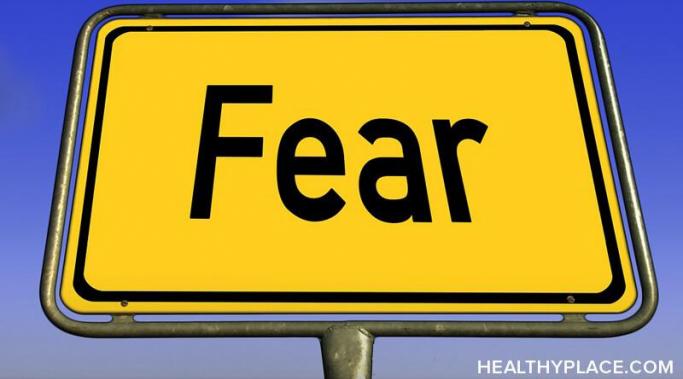Blogs
For most people practicing an alcohol-free lifestyle, there will eventually be an alcohol-centered party or event worth attending. Concerts, weddings, and holiday gatherings can be tricky, but not impossible, to navigate as a sober person. One thing that has helped me stay alcohol-free on a boozy night out is to redefine success.
Some who have struggled with childhood trauma might develop maladaptive daydreaming as a coping mechanism. For example, when I was only four, I endured child-on-child sexual assault and emotional abuse that made me feel isolated from the rest of the world. It felt too terrifying and heavy to be in the real, present moment. Any time I was still or not distracted, I felt extreme anxiety, panic, and sadness. This led to my development of maladaptive daydreaming — a habit I am still actively trying to break as an adult today.
Seasonal changes affect my mental and physical health in various ways, particularly during the hottest and coldest months of the year. The effects have ranged from fatigue and irritability during summer to depression in winter. Fortunately, there are ways to manage these seasonal changes and maintain balance.
Support groups have helped me a lot with my schizoaffective disorder over the years. Here are some ways support groups have been beneficial. (Note: this post contains a trigger warning.)
I've dealt with anxiety for a long time, and I've gotten to a point where I can recognize the symptoms of it. The problem is that sometimes anxiety happens for no apparent reason. When this happens, it's hard not to attribute it to something happening at the time. But sometimes, there really is not anything to attribute it to, and so, trying to problem-solve to help reduce any symptoms related to anxiety becomes difficult.
I was thinking back to my high school days. In particular, a memory of a talk in the school hall about the danger of harder drugs told by a recovering addict. That's where the term "gateway drug" became part of my vocabulary, specifically in relation to cannabis. This gateway drug idea was true on my part -- I firmly embraced the culture of marijuana at a young age. But my first drug encounter was with alcohol at the tender age of 13.
When was the last time you took a mental health day and didn't feel guilty about it? Wait, when was the last time you took a mental health day in the first place? Let's take a look.
One of the most complex parts of my recovery journey has been facing and letting go of the overwhelming guilt and shame I have attached to my past. These strong emotions can be difficult to work through, but there is freedom in learning from guilt. I am working on finding the lesson in each circumstance and letting go.
I think a healthy dose of fear helps ensure the integrity and continuity of our person and the relatively rational decision-making process that keeps us moving forward in our lives, or at least keeps us stable. Fear is necessary, but when left unchecked, it has a tendency to take over our lives. It takes one to know one, after all. I've spent the better part of my life cowering at one thing or another, and it led to total paralysis. If you're constantly afraid, whether it be of monsters, murderers, failure, or—finally—death, you've lost your freedom. You're a slave to your fear, and every choice you make won't reflect your autonomy as it ought to but, instead, your imprisonment. But you can make fear your friend to increase its usefulness.
Five symptoms of anxiety and depression include feelings of worthlessness, intense fear, rumination, thoughts of suicide, and guilt. I have experienced all of these symptoms. This has led me to miss out on opportunities that could have helped me improve my self-esteem, reach my goals, and find fulfillment. Last week, I decided to change that by volunteering for the Crisis Text Line. (Note: This post contains a trigger warning.)










I'm sorry things are so hard. I know what that's like.
I can't tell you what to do, but I can tell you this: it took me a long time to find the best treatment for me -- and things still require tweaking. Moreover, it's unlikely that any one thing will work on its own for you. You likely need a combination of approaches like therapy and medication together. And remember, doing what you have always done will give you what you've always gotten. You can't change your brain on your own.
One thing I can say is, don't give up. Things can get better.
-- Natasha Tracy
I'm so sorry about how hard it is. I know what it's like to appear "fine" but be anything but. I also know how hard it is to ask for help.
I think when you're asking for support, the best thing to do is to think about what you want to say ahead of time and think, specifically, about how to explain what you're going through. You can then think about how to express yourself while not overly concerning the other person. (Keep in mind some concern is normal and unavoidable.)
For example, maybe you want to talk about being depressed. You might say something like, "I feel like everything is grey. Food tastes like sawdust. I feel like I'm never going to get better. I don't know what to do."
All those things are normal and okay. You might want to further express something like this, though, "I know my brain is lying to me about never getting better, but it feels very real."
The second part is important because it helps the other person put what you're saying into perspective.
Other people don't know what it's like to be in your brain, so try to explain it to them and explain how concerned they actually should be.
Finally, if you can't do the above, I understand. It's awful to have to take care of the other person while asking for help for yourself. That doesn't mean you still should ask, though. If they're concerned, then they're concerned, and that's okay.
-- Natasha Tracy
Thank you so much for reaching out to share this part of your story. From one twin to another, I am deeply sorry for the loss of your sister, and I can certainly understand the frustration, discomfort, and insecurities of feeling like your bodies were under constant scrutiny and comparison. I appreciate your vulnerability and willingness to share your insights and experience.
I now live a very depressed life, which is very isolating. I understand the feeling of not wanting to die, but also getting very worn out from living.
One day I want to seek help for myself, and the rest of the time I think it would be best to just soldier on alone.
I hate being such a disappointment to people, whether it's friends, family, or even the rare relationships I encounter.
I've tried medication in the past, I've tried counselling and support groups, I now think that nothing will help, especially not even my own ability to help myself.
If only you could just take whatever is wrong out of my head, as I really hate to think things are just going to get worse until life decides it's time for me to pass.
I appreciate your transparency and step by step ideas to survive as a single person.. Even though I suffer from Bipolar 1, I find that either end of the polar spectrum creates chaos in my life as well as friends and family. These are the more full blown manic times, where literally everyone who cares about me are dealing with hospitalization emergencies. While well , they assume everything is fine. Now is the deep depression where even leaving my house or getting out of bed are really hard. I am overwhelmed and my house is a mess. I do not communicate my depression to anyone but my therapist because I don’t want to make them worry. I’m worried myself because of the unpredictability of this disease.. I am too sad to cry and I’m practically having a panic attack thinking about going to work tomorrow. At any moment I could snap at one of my unlikable colleagues. Even though I need a paycheck, I’m also fully capable of quitting if anyone crosses me. The biggest frustration is that no one seems to understand. I appear normal on the outsides but inside, it can really suck. I’m going to listen to your podcasts and hopefully, you will cover more specifics on how to elicit support without causing panic…and who wants to be appointed this unpleasant job.